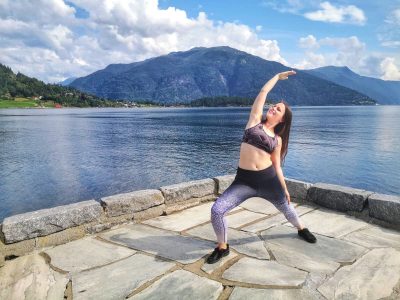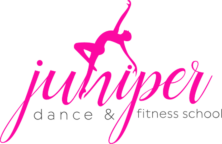I follow LL Cool J on Instagram and sometime last year he posted this on his stories – ‘Ego is not your Amigo’. I immediately screenshotted it. It made me laugh but really it’s so true! Ego is the thing that stops you from achieving your full potential in anything.
I was reminded of this phrase several times recently during classes I’ve been taking as a student. I’ve observed it dozens of times. I’ve even been this person in my younger years, but as time goes on I realise that feeding my ego is not a particularly healthy way to live. In some cases it can be inherently damaging.
Mostly I’m talking about pushing towards something you’re not physically ready to do. I began studying yoga at the beginning of this year and I had to give my own ego a good talking to several times. When I wasn’t where I wanted to be in the amount of time I thought I should be there in. When my chronically tight and weak hamstrings didn’t seem to be making much improvement (in reality they were, I just wasn’t open to seeing it – I was being impatient). When I could feel my already reasonably open hips becoming even more open, the frustration about my hamstrings only built.
This impatience to reach a level that you have decided you should already be capable of achieving (usually in an impossibly short amount of time, but also in the long haul) isn’t healthy for your mind or your body. And you see it all the time in adults at physical classes of any kind. Few people are in it for long haul in dance, Pilates, Yoga or any other movement system. We give up so easily these days. Or we push ourselves too far and give up that way.
At 33 I have more aches and pains than I think I really should at this point in my life. Yoga and Pilates and being physically active has helped to reduce them, but once you’ve injured yourself, that injury does tend to affect everything around it until you find the right balance in your body once again (and that is both difficult and time-intensive). I spent many of my younger years in dance and fitness classes pushing myself into positions that my body wasn’t ready for – floorwork, backbends, stretches… I’ve worked through the last 20 years with several injuries, several of which were caused by impatience or pushing further than I was capable of.
As teachers it’s our responsibility to pull you back from potential injury, but there’s only so much we can do. In Yoga class I’ve kind of assumed that all general corrections the teacher gives to the class are directed at me. Being physically active every day of the week makes you hyper-aware of what’s going on in your body, especially when you’ve trained in multiple systems. Every cue about alignment of the knee over the ankle, opening the chest, not going for the bind and focusing on lengthening the spine… I automatically assume these corrections are for me and check in. I don’t wait for correction from the teacher anymore – I seek to self-correct in every pose because I’ve heard these cues several times now – they’re at the forefront of my mind in every pose. I’m so conscious of my body I actually hold myself back sometimes because I’m over-cautious. I’ve had to allow myself the freedom to TRY the advancements in each pose, but know to back off if I’m not ready yet. And I think that this level of curiosity about the about the capability of your own body is important. But that the safety and alignment of the body should be paramount. And unfortunately, ego (and in some, perhaps many cases, just not having that level of awareness over the body) gets in the way.

As a movement teacher, I can’t help but notice when people are in bad alignment. Even when focusing on my own practice it’s hard not to notice. I notice people’s posture when walking down the street, so in a class it’s super difficult not to notice. And you can clearly see the difference between those who just lack all awareness of what their bodies are doing (usually due to the slight confusion etched on their faces) and those whose ego is winning. I often see people who are physically unable to get into a bind for example, force their way into it. I feel like, my body will let me know when this type of posture is accessible to me, just like it let me know when I was ready to lift two legs from the floor in Pilates exercises, and when I could do 8 chaine turns in a row instead of 4. Your body gives great indications of where your limits are and an easy way to gauge it is with your breath.
Breath is such a great indicator in exercise. If you can’t breathe easily and freely in a pose or exercise, you’re pushing too far. Holding your breath is a sure indicator that you’re not ready. I check in with my breath constantly as a student of exercise and it is something I remind my students of regularly, particularly in Pilates class. Sometime breath holding is due to concentrating so hard they forget to breathe, but most often it’s because the student is going beyond the physical means of their body in that moment.
I am a big advocate of TRYING. As I said before, if I feel comfortable in a pose or exercise, I push myself a little further to see if my limit has extended. But I also back off if I feel that I’m not ready yet. Those whose ego gets in the way will get themselves into an exercise regardless of form. Unable to keep their backs straight or their shoulders in alignment but determined to get the bind anyway. Unable to keep their body in correct alignment but determined to lift their heads off the floor for the hundred anyway. Shoulders hunching, chest dropping and pelvis practically touching the floor, but determined to be in a full plank pose regardless of what it is doing to their bodies. As instructors we can only try our best to educate our students and correct their technique, but ultimately our ability to control ego is limited. This is where the student needs to check in with themselves and ask themselves if they are truly ready for the advancements of each exercise they are given.
Another place where ego can get in the way is actually taking those corrections from teachers. I’ve seen students roll their eyes, assume that corrections couldn’t possibly apply to them and even shout at me when I’ve corrected them! As the teacher, my responsibility is your safety – correct alignment and execution of an exercise is paramount to me so that you don’t get injured. It doesn’t matter to me whether it’s your first time doing an exercise or your thousandth time. If you’re not doing it right, it’s my responsibility to make sure you know how to in the future. So if a teacher corrects you, accept it graciously and with thanks. It means they care enough about you to actually give it. Believe me, I’ve been in enough classes where I’ve wanted correction from the teacher and didn’t get it. I’ve been in enough where I’ve observed the teacher walking past students with poor alignment/technique week after week. Don’t let your ego tell you that you don’t need it.
Always remember, Ego is not your Amigo! 😉
